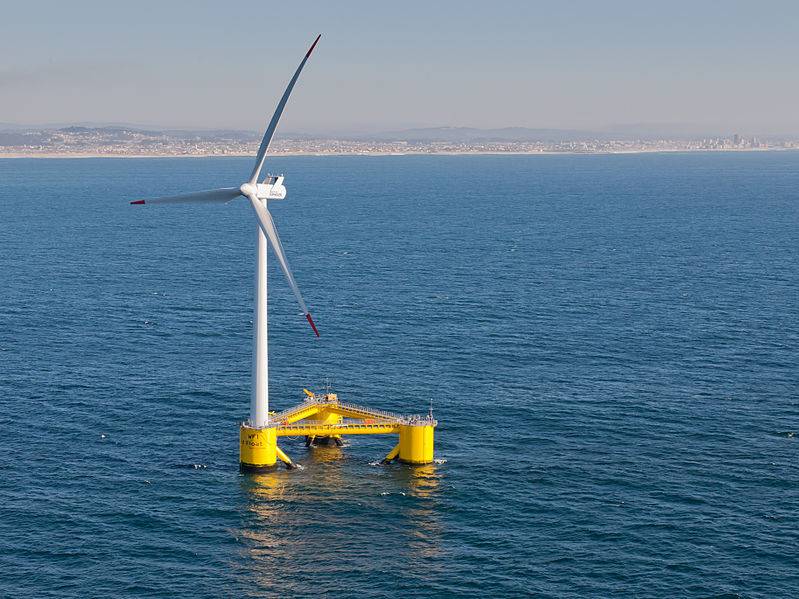Spain plans to install 1 to 3 GW of floating wind power

[ad_1]
Illustration – Credit: Untrakdrover / Wikimedia Commons – CC BY-SA 3.0
Spain plans to install floating wind turbines in the deep waters off its coast with a production capacity of between 1 and 3 gigawatts of electricity by 2030, its Ministry of Energy and Energy announced on Wednesday. ‘Environment.
Amid a global shift away from carbon-emitting fossil fuels, governments and businesses are looking for new ways to harness power generation from renewable energies like wind and solar.
Spain has one of the largest onshore wind fleets in the world, but its coastal waters are too deep to allow for the installation of wind turbines which have made it possible to exploit higher wind speeds and additional offshore space in Great Britain and other countries.
Considering the higher cost of building floating wind farms compared to the fixed variety which cannot be used in water deeper than 50 meters, Spain would provide up to € 200 million (236 million dollars) for research and development.
The proposals are open for public consultation over the coming month.
At the national level, the ministry said that the port infrastructure would require between 500 million and 1 billion euros of investments to support this type of projects, which, at the pilot stage, consisted of assembling the vast pieces on land and tow at sea.
Local wind giant Iberdrola has said it will spend € 1 billion on a floating wind farm in Spain if it gets support from the European coronavirus recovery fund.
The Canary Islands are already home to a few small projects, and the Spanish group Repsol has joined forces with its Portuguese neighbor EDP to install 25 megawatts of floating turbines off Portugal’s Atlantic coast.
The European Union currently has around 12 GW of fixed offshore wind farms and aims to increase them to at least 60 GW by 2030 and 300 GW by 2050.
He wants to top up the 2050 total with an additional 40 GW in floating wind, solar and other technologies using tidal power, which Spain will also study.
($ 1 = 0.8488 euros)
(Report by Isla Binnie edited by Mark Potter)
[ad_2]
